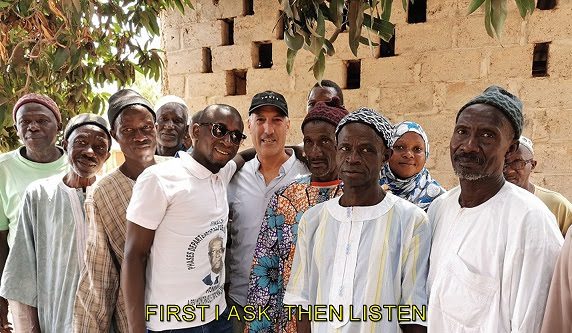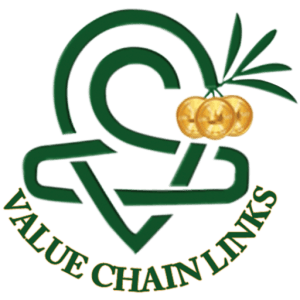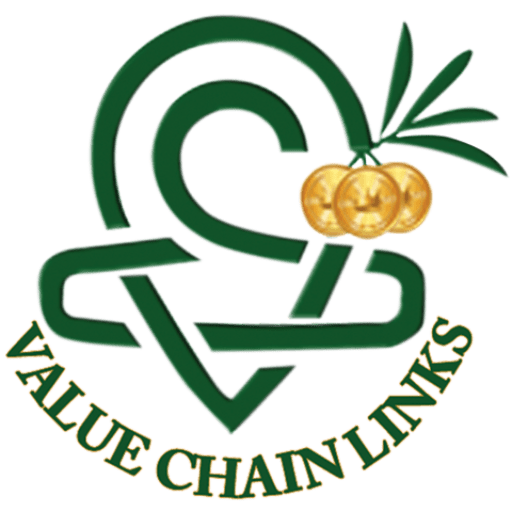WHY ARE QUESTIONS MORE IMPORTANT THAN ANSWERS FOR SMALLHOLDERS” FUTURE?

by dr. Nimrod
| SPECIAL ==============================Biofeed was selected by the leading magazine, ISRAEL21c, as 1 of 9 Top Ag-tech Companies Working To Ensure The Health and Wellbeing of World’s Trees. This is in respect to the environment Jewish holiday, TuB’shvat. |
| ============================== |
Solid and successful sectors, e.g., natural minerals, know well how to make money and then increase their value in a financially sustainable manner.
They already know what is working best for them, their future is secured, and their challenges are known. Hence, they look for answers to well-defined “tactical questions.”
The problem is with the weak sectors, such as smallholders. First, they are vulnerable because their financial results are poor, meaning the answers and the solutions to their problems are insufficient.
Will more-of-the-same answers provide what they need?
For sure not!
They need better questions that eventually will lead to better answers, which leads to improved business results, which leads to a better life free of poverty.
In this column, I share a method that enabled me to reach high achievements in every domain I practiced.
YOU CAN CHANGE
Is it naive to want to change the world and make it a better place for all?
Some may say it is naive. Others think it is impossible.
Then there are the rebels, doers, and the visionaries who follow their hearts. They don’t listen to the pessimistic, the naysayers, and the unbelievers. They are the ones who are changing the world.
Too often, when you want to change, to do things differently, you get this iconic response,
“Why do you want to make it different? This is how we have always done it.”
Such an attitude delivers a message of “Chill down, do not rock the boat, take your time and do like we have always done. But, above all, do not challenge the present order by suggesting things can be done better”.

But what if you are not A Yes Man (a conformist) and you are committed and determined to bring a difference and introduce a change?
What if you are unhappy with the existing reality and sure things can be better if done differently. That, even if presently you do not have the answers of what is this “differently,” and how you will achieve that “better existence.”
If this resonates with your experience, then maybe you have an entrepreneur’s heart and state of mind.
Martin Luther King was a social entrepreneur who sacrificed his life (assassinated on April 4, 1968) while fighting to advance his dream to make a better world.
Anywhere, some oppose any change, even most just and needed changes.
Martin L.K was killed by one who opposed the change, but his dream didn’t die with him.
I am sure you have a dream. Never neglect your dream or let others kill it.

THE CHANGE BEGINS IN YOU
Martin L.K. is not alone (he is unique), but all significant (historical) changes result from humans who had a different vision of the world, and they stepped up and acted.
A person who wishes to bring change must start by changing himself.
It means that regardless of the later magnitude of the change, all changes begin at the individual level – YOU! Believe in yourself.
It was September 1991 when I returned to Israel from around the world for one year trip. I asked myself, “What can I do to help many people and impact future generations?”
After many years and deliberations, I decided to focus on helping farmers increase their income by growing better, free of pesticides, and healthier produce for consumers.
This way to change farmers’ lives (from poverty to prosperity) and improve our health and the environment thanks to transformation to an eco-friendly crop protection approach.
In 1994, when I began working on my life mission, I had no clue how to achieve that dream and vision I was aiming for.
NOTE – I was unaware of how long it would take and the personal sacrifice it would require.
I never thought that nearly 30 years later, I would still be focused on it more than ever before.
Yet, I am glad that I took this journey and the positive change I am bringing to many people.
QUESTIONS
Often I ask myself (and others ask me too), “How did I end up achieving such challenging goals?”
I believe it has to do with combining two opposite approaches:
I have a deep respect for what others did before me while simultaneously looking to improve things, knowing that as previous generations improved what their predecessors did, so can we.
Change and improvements are endless.
I am not the first or the only one to deal with global issues such as – improving crop protection, developing non-spray crop protection technologies, fighting poverty and hunger, etc.
Then how come that within a relatively short period and with a small budget, Biofeed, and Green Valley managed to achieve what so many before them failed to achieve?
Thinking of it, it seems that I owe much of my professional success to the problem-solving approach I embraced years ago.
This approach emphasizes studying the problem and current state in-depth before starting any activity.
To study the subject thoroughly, I do it as young children do; by asking many questions, over and over again.
Asking questions is part of the method of learning the topic. Other features include field trips, personal face-to-face meetings, studying existing publications, etc.
This enables me to glance at A Problem from many different angles. Hence, to devise a better answer and solution even to a fundamental problem that was previously considered unsolvable.
My reward is seeing my dream come true.
THREE STEPS
Very roughly, we can divide the process of “problem-solving” into three stages;
* Start–learning and understanding the current state.
* Middle – “painting” and designing the future state we wish to see.
* End – preparing and executing a plan to bridge the gap between the “current state,” from which we wish to move away, into the “future state” we plan to create.
Too often, we fail to solve a problem because we neglect and underestimate the importance and difficulty involved in studying the “current state.”
We learn of the “current state” by asking questions. Don’t be afraid of asking the most daring questions, or you will fail before even starting.
Here I present two types of questions; the “fundamental questions,” which challenge our belief in the “possible” limits.
Then there are the “tactical questions,” dealing with the mechanism of How, What, and Why things are done the way they are and their results.
EXAMPLE TO FUNDAMENTAL QUESTIONS
Question: Is it possible to eradicate fruit flies without spraying?
Answer: Yes. Farmers in Africa and Asia, using the FFCTZ protocol, have reduced fruit flies infestation by 99% versus alternative sprays/trap-regimes.
Question: Is it possible to grow and market export-quality fruits without chemical sprays?
Answer: Yes. All farmers participating in the Green Valley Senegal 2021 campaign used zero chemicals during the entire season.
Question: Is it possible (and if so, how?) to increase the income of smallholders continuously and at a fast pace?
Answer: Yes. Farmers participating in the Green Valley Senegal 2021 campaign increased their income by 50% to 500% (!) already in the first year!!
Don’t fail to believe that getting the answers and solutions to fundamental questions is an easy task. You see above the results of 30 years of intensive work, which now bring the change.

Unlike fundamental questions, the answers to tactical questions are received immediately. We later use those answers to solve better “fundamental questions.”
EXAMPLE TO TACTICAL QUESTIONS
What is… the yield/infestation/income, etc., per hectare?
How do you… practice pest control / harvest / logistics, etc.?
Who is involved in each of the above activities?
Why do you do X, Y, Z activities this way?
Those trivial questions may look silly or even foolish to you, but don’t fall into this trap – we can’t design different or better solutions to the fundamental questions without fully and deeply understanding “tactical” issues and details.
This is why I invest endless hours every year talking with farmers and other value chain partners and stakeholders, asking questions (often the same), in the hope of further improving my knowledge and broadening my understanding.
I do it with passion, for I understand that the answers I can provide will never be better than the depth of my understanding of the faced challenge.
DON’T BE AFRAID
Some are afraid to ask questions out of misguided fear that it will present them as beginners or unprofessional.
Mistakenly, such experts think, “I am the expert. Hence, I should give answers and not be the ones to ask questions.” This is an ego problem.
The truth is, asking questions is an art of those who are self-confident and ready to listen to ANY other opinion or thought.
It is a way of life that chooses to step in between the safety of exclamation marks and the unknown of the question marks. It is a way to understand others better.
When you ask questions, you must be modest, and it reminds you that you don’t know everything, especially how much more there is out there for you to learn.
Looking back, I notice that every scientific or business breakthrough I experienced came from asking better, more precise, and pertinent questions after already asking many questions.
Don’t be afraid to ask the same questions a million times to a million people. You may be surprised to find that you are not a machine, and every time you perceive the answer somewhat differently.
Like drops of rain that at a moment that you can’t predict turns into a flood, the many “answers” to your questions will one day pop up into a solution that will bring the change you dream of.
When I followed the path of asking, instead of answering, by the end, I found that the solutions we came up with were far better than initially planned or expected.
And that leads me to one other thing; when you ask questions, you should open your mind to accept different answers and solutions than those you anticipated.
But don’t worry, this is fine. Keep the focus on your goal and mission.
Make sure that regardless of how the answers and solutions may appear, they take you to your destination, and you achieve your goals and mission.
The world belongs to those brave enough to ask questions and are not afraid of unconventional or controversial answers.
ENJOY THE JOURNEY
| TAKEAWAYS» WEAK SECTORS, like smallholders, don’t need more of the same answers; they need to start with critical fundamental questions.» TACTICAL QUESTIONS are the window to understand the present better. Don’t presume you fully understand the present.» THE SOLUTION you will eventually provide is the enriched reflection of your understanding of the challenge you face. |
| If you enjoyed the article please share it with friends & colleagues. |

